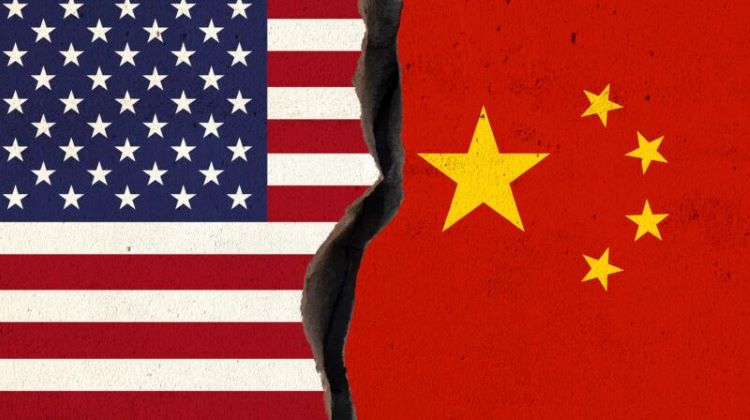Anamika Dey, editor
Synopsis
- China has adopted a more aggressive stance in response to U.S. trade tariffs, emphasizing the need to protect its rights and interests.
- Chinese officials expressed a willingness to negotiate despite opposing the U.S. tariffs, particularly regarding the fentanyl issue.
- China plans to impose its own tariffs on U.S. imports and seeks a fair environment for cross-border e-commerce.
Detailed
BEIJING — After the Trump administration’s initial round of trade tariffs, China has adopted a more aggressive stance.
According to a translation by CNBC, He Yongqian, a spokesperson for the Chinese Ministry of Commerce, told reporters on Thursday, “In the face of one-sided acts of bullying, [China] will definitely take necessary measures to firmly protect its own rights and interests.”
She also stated that China will not instigate trade disputes and that it was still prepared to address issues through discussions. The official remark from Beijing earlier highlighted the desire to engage in negotiations.
On Wednesday, Lin Jian, the spokesperson for China’s Ministry of Foreign Affairs, expressed a similar sentiment.
He stated, according to an official English translation, “China firmly deplores and opposes the move of the U.S. to levy a 10 percent additional tariff on Chinese imports under the pretext of the fentanyl issue.” “The actions that China has taken are necessary to protect our legitimate rights and interests.”
CNBC has contacted the U.S. State Department to request a statement.
The official comments were made only a few days after the United States declared that it will impose a 10% tax on Chinese goods. In response, the Chinese government stated on Tuesday that it would impose its own tariffs of up to 15% on liquefied natural gas and some other products imported from the United States, beginning on February 10.
The United States also put a stop to what is known as a de minimis exception, which increased the cost for Chinese e-commerce merchants to send products directly to consumers in the United States.
A representative for the Ministry of Commerce On Thursday, he called on the United States to establish a “fair and predictable” environment for e-commerce that crosses borders.
Source : CNBC news




